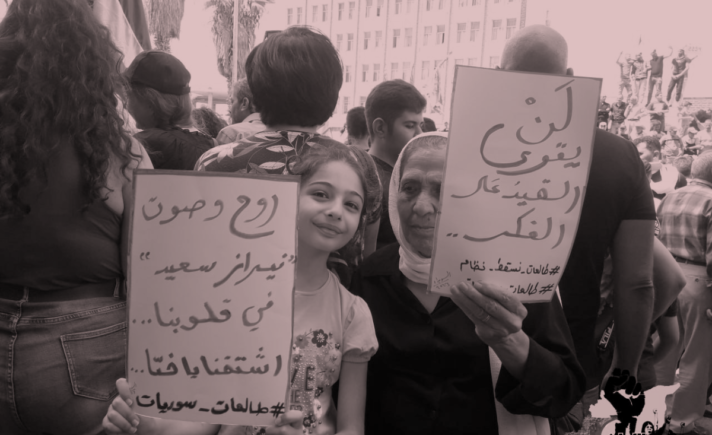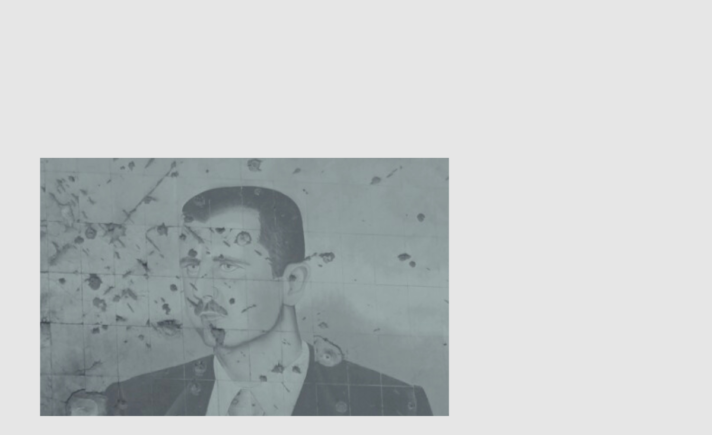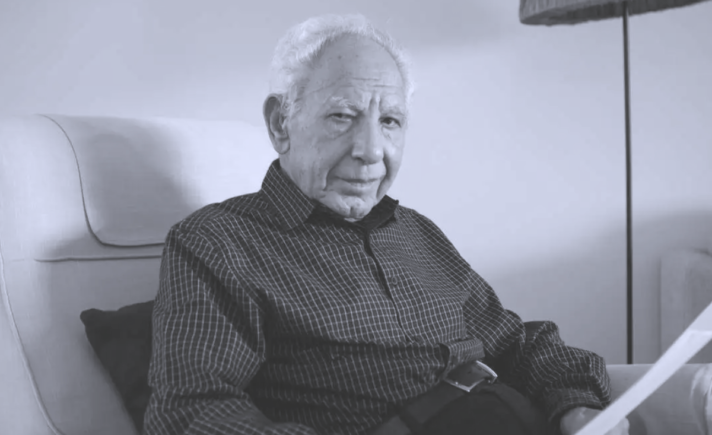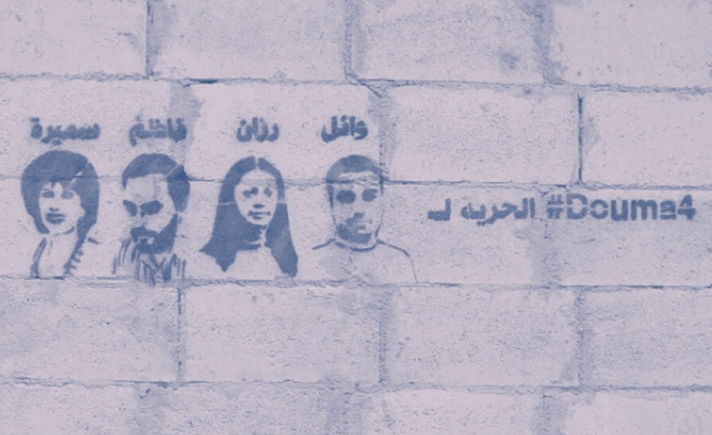[Editor’s note: The below is a response to Vicken Cheterian’s article, ‘How do you say “genocide” in Arabic?’, published on 2 March, 2018]
When Vicken Cheterian alludes in his recent article to Arab denial of the Armenian genocide, it’s not clear if he means denial of the occurrence of the genocide per se, or the denial of Arab involvement in it. The concept of denial is very powerful, given it amounts to a continuation of the enormous crimes of genocide, prevents the healing of its wounds, and preserves the genocide as something contemporary for the victims’ descendants, impervious to the passage of time. Therefore, it’s in the nature of raising the matter of denial without serious discussion that it becomes an instrument for throwing victimhood narratives back and forth, in a manner perhaps prodded by prevailing political climates, or for justifying present positions.
It would be fairer, I think, to speak of a lack of interest, or indifference, on the one hand; and a paucity of knowledge, or lack of awareness on the other; rather than non-recognition or denial, as Cheterian does. The issue is extremely marginal in the Syrian setting (Syrians alone among Arabs are concerned with the Armenian genocide in some sense), for historical reasons that are easy to identify, for there was no Syrian entity at that time, nor was there organized Syrian or Arab participation in exterminating Armenians. The involvement of tribal Arabs mentioned by Cheterian requires more than a passing reference, to establish whether it was incidental advantage taken of the situation of a persecuted and unprotected group (which is of course to be condemned), or if there was an organized effort to target this group systematically with the goal of annihilating them. In my view, the former is the case, and with or without it, there would have been no difference for the Armenian genocide, which was directed by the apparatuses of the Ottoman government in the years of the Committee of Union and Progress, under the cover of the First World War.
Moreover, if one is to speak of Arab denial of the Armenian genocide, what word would Cheterian use to describe Turkish denial? Turkey is deeply implicated in the Armenian genocide, not only because the perpetrators were Turks, and the political planning was Turkish, but also because the Turkish republic was founded to a large extent on suppressing this horrifying fact. The responsibility of the Turkish state for the Armenian genocide is akin to the responsibility of Germany for the Holocaust, and the ethical and political recovery of Turkish society can only happen by undoing this suppression, and acknowledging the guilt, and reconciling with the victims. It would be a great exaggeration to say something similar about Syria. The history of our country contains many suppressed crimes—and our own recovery will also only come through acknowledging them, and speaking about them, and apologizing to their victims—but these do not include the Armenian genocide. I know that denial can take the form of silence, secrecy, or subversion, as the Turkish researcher Fatma Müge Göcek has shown in her most important book, Denial of Violence; however the matter here is one of indifference, arising from the absence of any organized role by any local actor in the Armenian genocide, whether in decision-making, implementation, or participation. Nor does it appear that any Armenian Syrian (or non-Syrian, as far as I’m aware) has alluded to such a denial prior to Cheterian, even if the facts of the scattering of Armenian women and children among the residents of Syria’s northern regions, and their assimilation therein, are known and remembered (an unjust power relationship facilitated their conversion to Islam, and the marriage of Armenian women, some of them bearing the tattoos borne by the local women of those regions).
I speak likewise of a paucity of knowledge or lack of awareness, not because the facts of the Armenian genocide remain known to few Syrians to this day, but rather because there is no discourse; there is no issue or discussion about the matter; there is no advocacy or agitation. In Turkey there is discourse, there is discussion, and there is utmost agitation and very vigorous denial, cemented by (mis)education and protected politically.
Near the end of his article, Cheterian refers, in a way that seems to me quite strange, to “the violence we are witnessing today” in Syria, linking this to what happened to the Armenians, who were brought to Deir al-Zor by the late Ottoman rulers in 1916. It is not clear what he means, and he does not clarify the nature of the link to his reader. One gets the impression there is one large event, which is the Armenian genocide, and then there are abstract, unnamed events of obscure “violence,” which are linked in a certain way. What is the relationship? Does “the violence we are witnessing today” occur due to denial of the Armenian genocide a century ago? Cheterian does not quite assert this is the case, though he recommends further study. Very well: we are all in need of that. I leave aside that Cheterian speaks of “the violence we are witnessing today” as though it is taking place somewhere far away, without naming any of the actors, or condemning anyone or expressing solidarity with anyone. This is odd, because it’s possible for it to be a form of denial from someone who knows denial can take many forms, including abstracting a terrible historical catastrophe happening today, and deeming it obscure “violence,” perhaps rooted in the suppression of prior violence a hundred years ago.
There are two problems with Cheterian’s approach here, in my view. The first is the centering of his thinking on groups and identities, rather than on the state, and international affairs, and historical contexts. The second is his allowing Armenian victimhood to govern his approach to today’s situation, in a manner that leads inevitably to harming both at once: forcing the Armenian genocide into current conflict contexts, without helping in any way to understand the situation today.
The first problem exacerbates a flaw inherent in the concept of genocide itself. The term was coined, as Cheterian says, in 1944 by the Polish-Jewish lawyer Raphäel Lemkin, who lost around fifty members of his family in Poland, whence he fled to Sweden and then the United States during the Second World War. The United Nations codified the crime of genocide in 1948, defining it as any act “committed with intent to destroy, in whole or in part, a national, ethnical, racial or religious group.” In the discussions prior to the adoption of the Genocide Convention, political groups, such as parties or organizations, were omitted from this definition under pressure from the Soviet Union, the Stalinist regime of which had succeeded in exterminating its opponents over the course of the thirty years since the revolution; had, indeed, exterminated most of the Old Bolsheviks themselves. Britain, too, objected to the inclusion of political groups, fearing it would lead to scrutiny of its colonial record. In the end, the concept of genocide developed a strong focus on groups of pre-defined identities, such that it did not apply, for example, to the extermination of between 500,000 and one million Indonesian communists killed by horrific means in scarcely a single year between 1965 and 1966. And because the concept of genocide is “action-oriented;” that is, meant for condemnation, intervention, and punishment, as Christian Gerlach says in Extremely Violent Societies, it has become incumbent upon us to prove that what happened was genocide in order for us to obtain the recognition of global institutions, by demonstrating that the victims, even if ‘only’ in their hundreds, originate from a distinct group targeted for its identity, for if this is not clearly the case, it won’t be deemed genocide even if the victims number in the hundreds of thousands. And this is what opens the door for competition between political and human rights activists, and writers, to ‘prove’ genocide here and ‘disprove’ it there, and the competition over denials and group victimhoods, and the ranking of certain victims above others. To put it another way, the concept encourages the sectarianization, or ethnicization, or nationalization of thinking about exterminations, and wars, and political conflicts, whereas one might suppose the work of researchers and human rights defenders is rather to reveal the processes of group formation, or their transformation from one form to another as a part of war and extermination.
Identities are the product of discrimination, killing, and extermination more than the other way around, however in any case one must examine conflicts and contexts in detail, and each one in isolation. The Yazidis in Iraq were targeted by ISIS because they were Yazidis. This was textbook genocide. And yet, regardless, the serious historian and researcher is bound to reveal the social and political and psychological structures that made such an exterminator (ISIS), and such an extermination, possible. The American invasion and occupation of Iraq in 2003 have high explanatory potential here. The subsequent Shia government that fell under Iranian influence is of equal importance.
And by dint of its focus on identity, the diagnosis of genocide can only have treatments of an Israeli kind: ethnic or ethno-religious states, or unions based on ethno-religious power sharing. Israel is the purest product of the most organized and industrialized genocide of the twentieth century, and it is a continuous fount of violence and racism; a cold, protracted genocide.
There are those who, to correct for this focus of the concept of genocide on distinct groups, have developed adjoining concepts, such as politicide (Barbara Harff and Ted Gurr, 1988), or political extermination. This concept today means one of two things: the extermination of residents, or a group of residents, politically, without exterminating them physically (i.e., enslaving them politically: Baruch Kimmerling spoke of a politicide of the Palestinians in Israel, though Ariel Sharon alone appeared to be the villain of his story); or the extermination of residents, or a group of them, physically, for political reasons, including in response to rebellion or revolution, or anything classified as insubordination and disobedience of the rulers. And it is this that in my opinion makes possible the rationalization of the genocide concept, and the looking at identities as social and political relationships and processes.
The inherent flaw in the genocide concept expands in Cheterian’s treatment, which leans further toward confining groups in fixed, predetermined identities, rather than the opposite. Significantly, for example, he speaks of “Arab” denial, not Syrian denial. Who is this Arab, one wonders, who’s supposed to abandon this denial? Exacerbating this is the absence in Cheterian’s analysis of the conventional framework of genocide as systematic violence practiced by the state and affiliated organizations, framing it instead as a relationship between religions, and identities, and ethnicities, stripped of politics. He welcomes the fact that Adam Jones, in a later edition of his book on genocide, two passages of which I translated to Arabic, shifted from speaking of “the Armenian genocide” to speaking of “the Ottoman destruction of Christian minorities.” In contrast to this, the best Turkish literature on the Armenian genocide argues instead that it occurred in the context of the emergence of the Turkish nationalist state, and the collapse of the multi-national Ottoman sultanate. This is the opposite of the direction taken by Cheterian in his book, Open Wounds: Armenians, Turks, and a Century of Genocide, which presents the conflict in terms of fixed identitarian elements: Muslims/Christians; Armenians/Turks (and, in his article, Arabs and Kurds/Armenians).
It appears it is this identitarian inclination that prompts Cheterian to cement the Armenians in the place of the victim. This not only deprives the book of a sense of struggle and the clash of nationalist aspirations in the age of imperialism, and the rise of nationalisms, which would have enriched the book, but it also denies the Armenians themselves all agency while attempting to defend their rights and worthiness. I believe Cheterian’s absolute condemnation of the Armenian genocide pushed him to portray the Armenians as absolute victims, stripped of agency. This is unfair to the historical reality, and it is unfair to the Armenians.
Now, then, what about “the violence we are witnessing today” in Syria; is it genocide? What gives people pause on this question is the identitarian focus of the concept, and the feeding of victimhood to which it leads, as well as the adoption of irrational approaches, whereas one might think we were instead in need of incorporating identities in open social, historical, and political contexts, making them themselves a product of processes of separation and categorization and classification, prior to and simultaneous with exterminations. There is nothing in this to relativize exterminations; entirely the contrary. It is the treatment of exterminations as identitarian conflicts arising from our hatred for one another that keeps us in the framework of identitarian conflicts endlessly succeeding one another and reproducing, with none of us able to confirm our victimhood without denying someone else’s, drowning all the tragedies in irrationality and degradation and savagery. Thus do facts become opinions; all of us having “our own” truth, just as we each have our own opinion, as the post-truth school flourishing today would have us think.
I fear that Cheterian’s treatment encourages the path of relativity, and the competition of victimhoods, and the mutual pelting of denials, with the implication that our history is nothing but a vicious cycle of exterminations and victimhoods and denials. This is to the extent that history is interpreted by identities, rather than identities being interpreted by history.
Sober historical thinking situates the formation of identities, their reformation and dissolution, in history, and sees them as historical processes to be studied with the logic of one history, and not the logic of many identities. Thus does it assist us further in building a cross-group consciousness and politics, opposed to extermination qua extermination, and not to some exterminations without others.







